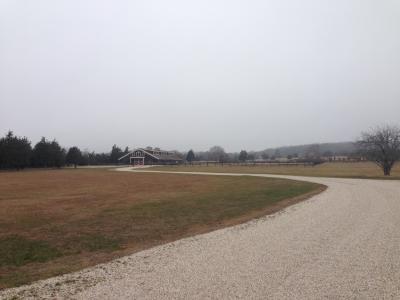C.P.F. Farm Buy Is Subject Of D.A. Subpoena

The Suffolk County district attorney’s office has subpoenaed documents related to East Hampton Town’s $10.1 million community preservation fund purchase last year of 19 acres called Amagansett Farm, Supervisor Larry Cantwell confirmed yesterday.
Mr. Cantwell said the town was complying with the request, but that he had received no further information about the D.A.’s inquiry.
The property, along Montauk Highway in Amagansett, was targeted for an extensive market-rate housing development that was opposed by many community members and was derailed when the town purchased 19 of the parcel’s 24 acres.
“It was certainly a good purchase,” Councilwoman Sylvia Overby, the town board liaison on community preservation fund matters, said yesterday. “It was wanted by the community, and it certainly took off a zone-busting proposal.”
The Putnam Bridge company of Connecticut had proposed a 79-unit complex with units going for upwards of $1 million, and sought to have the town create a new senior citizens housing zoning district to accommodate the plan. Numerous community residents banded together to oppose the idea, which was counter to town zoning.
The property has a large barn set up as a stable and was to be leased by the town for agricultural use to an entity or entities chosen by the town board from among several that responded to a request for proposals last year.
Proposals have been under review by a committee that will report to the town board, and were reportedly narrowed down to two. Officials have said that negotiations between the two entities regarding a shared use of the land have been ongoing.
But, Mr. Cantwell said yesterday, the D.A.’s request complicates the matter, and “throws cold water” on a pending lease deal.
The town’s purchase of the barn along with the land is problematic in the eyes of New York State Assemblyman Fred W. Thiele Jr., an author of the law creating the preservation fund and the 2-percent real estate transfer tax that supports it.
“What I’ve always said . . . is don’t buy buildings,” the Assemblyman said yesterday. “It doesn’t fit into the program.”
The fund is earmarked for the preservation of open space, recreation, farm and, and historic structures, and Mr. Thiele said it should not be used for buildings unless they are historic, or are to be torn down in order to return a site to its natural state.
At an April 25 meeting last year, several weeks before East Hampton closed on the land, a regional community preservation fund opinions bureau, established to review questions regarding use of the fund, discussed purchases of parcels with buildings on them. According to Mr. Thiele, the group agreed with his stance, reiterating an opinion that “towns should not be purchasing buildings,” according to minutes.
However, Mr. Cantwell pointed out, the minutes also state that “an accessory building to agriculture is acceptable,” though state agriculture and markets law might apply.
“There’s no prohibition against the town acquiring land with buildings on them,” he said.
The advisory opinion bureau had discussed issuing a written opinion on the issue last year, Mr. Thiele said.
That “would have been appropriate at that time,” Mr. Cantwell said.
A formal opinion may yet be issued, said Mr. Thiele.
Either way, said the assemblyman, whether the cost of the building should be covered by the land fund or not, East Hampton Town’s purchase of the Amagansett Farm site is not a misuse of the fund, nor a criminal matter for the D.A.
“I doubt there’s any relation to the D.A.’s subpoena,” he said of the barn issue.
The state comptroller, in a standard audit of the town, might weigh in, he said, and ask the town to repay the land fund for the cost of the building alone, but “it’s not a criminal issue.” Rather, Mr. Thiele said, “It’s an honest disagreement, or difference of opinion,” regarding the preservation fund’s mandate.
“Throughout the history of the program, there have always been issues of interpretation that come up,” he said. “If the town has a different opinion, and the comptroller agrees with them, that’s fine.”
Should there be a determination that the barn should not be a part of the preservation fund purchase, Mr. Cantwell said the town could reimburse the C.P.F. for its cost, or the barn could be demolished.
Several of those seeking to rent the property had floated the idea of a varied use of the building, for community events or rental office space, for example. At a town board meeting last week, Elaine Jones, whose property and farmstand is near the Amagansett Farm site, suggested the town move its senior citizens center, now housed in an aging building on Springs-Fireplace Road, to the farm building instead.
But Ms. Overby said yesterday that activities unrelated to agriculture would not be allowed.
Prior to acquiring the property, the town board had discussed the existence of the building and determined that it could be purchased along with the land, and used, if associated with the agricultural use of the site.
“I feel very confident that this was a really good purchase,” she said. “We asked all the right questions beforehand.”
